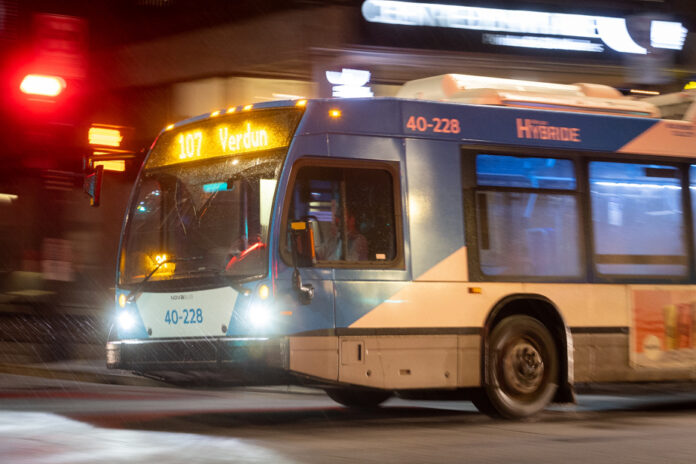The public transport industry welcomes the government’s aid of 400 million in 2023, which should make it possible to avoid major service cuts. However, several questions remain unanswered as discussions are set to begin on funding for the next five years.
Quebec confirmed in its annual budget on Tuesday that it will provide some $400 million this year to the public transit industry, rocked by a funding crisis. The goal: to put in place the solutions that will have been identified following the consultation tour that the Minister of Transport, Geneviève Guilbault, will begin in the coming weeks.
“This assistance for 2023 is welcome. Over the next few weeks, the board of directors will have to balance the 2023 budget without affecting the level of service to users, “confirmed Tuesday the Regional Metropolitan Transport Authority (ARTM), which will receive approximately 340 of the 400 million of the emergency aid granted by the Legault government. In total, the shortfall of transport companies in Greater Montreal is approximately 500 million.
The director general of the Authority, Benoit Gendron, assures that his “priority is to ensure that each dollar invested” by the government translates “into a maximum of services”. “It is our duty as managers of public funds. […] We want to go further, do better and deliver more,” he says.
The same goes for the Société de transport de Montréal, whose president Éric Alan Caldwell welcomes the aid of 400 million, but maintains that “the amounts allocated are not sufficient in our eyes to move towards a revival of public transport, which is necessary for the ecological transition”.
The Montreal operator is also concerned about the low increase in investments dedicated to maintaining assets. “The upkeep and upkeep of our infrastructure is a mandatory condition for providing efficient and safe service. […] It is essential to identify dedicated, indexed and recurring sources of funding to finally give ourselves the means to achieve our ambitions,” continues Mr. Caldwell.
At the Alliance for the financing of collective transport in Quebec (TRANSIT), coordinator Samuel Pagé-Plouffe believes that these announcements “set the table well for negotiations in the coming months”, in order to come to an agreement on five years as Minister Guilbault wants. “That said, the structural challenges are far from resolved and we must focus on them from now on,” insists Mr. Plouffe.
“It’s up to the mark. We honestly expected something a little less interesting, so we are still satisfied. We save the furniture in the short term to avoid service cuts, but there are still issues, ”said the general manager of Vivre en ville, Christian Savard.
“Emergency measures for public transport are well below the sums necessary to maintain transport at acceptable frequency levels. We will therefore see a reduction in services, traffic and frequency, when we should eventually double the offer, ”says PQ transport critic Joël Arseneau.
Among the Liberals, finance critic Frédéric Beauchemin laments that “the lack of funding for public transit and its uneven distribution in the regions of Quebec will get us nowhere.” “The energy transition will require major investments that will benefit future generations, which the CAQ excludes from its budget,” he said.
Sarah V. Doyon, the director general of Trajectoire Québec, for her part, was “reassured”, judging that the aid should make it possible to avoid cuts in the service. However, she deplores that the Land Transport Network Fund (FORT) now has “a deficit of nearly a billion dollars”. “Yet the budget does not propose any new sources of funding. It does not index or augment existing sources either. What are we waiting for to act? »
Samuel Pagé-Plouffe also deplores that the Legault government is “in full stagnation” on its commitment, which was made when it was elected in 2018, to rebalance investments in the road network and that of transport.
“We have really stagnated since 2018 on that side,” points out Mr. Plouffe, who also denounces that the “projected” investments in the longer term in public transport rose from 49.9 billion last year to 41.2 billion. dollars this year.
The CEO of the Quebec Trucking Association (ACQ) Marc Cadieux welcomes the investment of Quebec in the road network. “Our roads are much more messed up than we see in the latest reports. The explosion in the costs of the La Fontaine tunnel demonstrates this,” he concludes.















